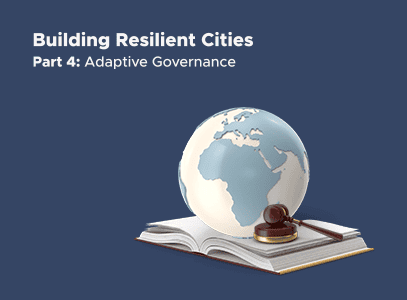Inspired by Patrick Collison’s questions, where he nicely links to us, I thought I’d write up some of my own. These questions are focused around charter cities and innovative governance.
Which system of governance is optimal for economic development? How location dependent or universal are governance systems?
The general consensus in the West is that open governance, as approximated by the World Bank Doing Business Index, is sufficient for economic development. China is challenging that model with industrial policy inspired by Friedrich List. The Asian Tigers also followed the List model for development more closely than the Smithian model. Additional questions of disease burden, geography, state history, play into development questions. How does scale affect the optimal model? What is the governance/policy advice for a 100,000-person city, 1M person city, and 10M person city? How does it change with location?
What are the constraints on forms of territorial governance?
Why is the nation state the dominant form of governance today? Why did nation states outcompete city states like Venice and Genoa, urban leagues like the Hanseatic league, and empires? The best evidence I’ve seen points to the ability nation states to create internal free trade zones. A world of low tariffs suggests the case for the nation state might be decreasing.
What is the best way to increase the longevity of successful forms of territorial governance?
Individual sources vary, but the general consensus is that Renaissance Florence only lasted between 200 to 300 years. The US is approaching its 250th anniversary and we’re seeing significant signs of institutional decay. Is this a function of natural stagnation as interest groups eat rents? Is it possible to design institutions which are less susceptible to stagnation? If so, what would they look like?
To what extent is territorial governance going to be unbundled in the 21st century?
A number of companies are emerging to provide services which were previously the domain of government. Prominent examples include arbitration companies, blockchain, even in the battlefield with Blackwater (or whatever it’s called now). Territorial governance isn’t going anywhere as physical safety remains paramount. However, with the rise of for-profit enterprises providing services typically offered by the state, we’re witnessing a real-time shift in the conception of the state. I expect this to continue. The question is how far this shift occurs.
What is the relationship between geopolitics and local governance?
Somaliland, a nominally independent country, has had free and fair elections for a generation, and remains unrecognized which shows the difficulty of starting new countries. Charter cities aren’t sovereign, but do call bring to mind some of the concerns. Tyler Cowen, in his charter cities talk, emphasized the importance of ‘hegemon backed charter cities’, e.g. Hong Kong. On the other hand, China’s One Belt One Road project is changing local governance. We are living through a time of decay of existing institutions. This decay increases the variance in governance, and understanding the factors which influence it, including geopolitics and local concerns, is crucial to understanding how the world will change.
How will humanity spatially reorganize itself in the 21st century?
Humanity is urbanizing rapidly–to the tune of 70 million people annually–primarily in Africa and Asia. Existing cities will continue to grow rapidly, and new urban centers will also emerge. Shenzhen, for example, was a fishing village of 30,000 residents in 1980. Today, it’s home to more than 12 million residents. In addition to rapid urbanization, transportation advances, VR, and climate change will shift entire populations. Climate change might make the immediate region near the equator, less habitable. On the other hand Siberia and Canada will open up for farming and resource extraction. VR will change how people spatially locate, most likely leading to more remote work. Transportation technology, like supersonic flight and hyperloop, might increase the concentration of humanity in mega cities.
Is it possible to infuse a charter city with good cultural norms?
Culture is extremely important in a company. The same applies to cities. In a company culture tends to flow downstream, starting with the CEO. It is further reinforced by who the company hires and fires. Most cities don’t have the luxury of ‘firing’ residents. As such, the pathways to influence culture are limited. Different cities have different cultures. Most of these are the byproduct of historical events. Nevertheless, given the importance of culture, city developers should play an active role in shaping city culture to the extent possible.
What is the interaction of culture with a charter city?
In Shenzhen style charter cities, where the most residents come from rural backgrounds and possess low human capital with little experience in the modern economy, how will they interact with the modern governance of a charter city? How can governance be designed to minimize local backlash. Put another way, how can locals be made to feel like they have a stake in their community?
What improvements, both on the margin and wholesale, can be made to governance that is currently best practices?
Developed countries tend to work reasonably well. What marginal improvements can be made, for example making the FDA less risk averse? What wholesale improvements can be made, overturning freehold with the Harberger tax? Is there a set of governance reforms which have simply not been considered because it wasn’t possible to conceive of an implementation strategy? Are any of these reforms sufficient to justify the infrastructure costs of creating a new city?
What is the steelman against charter cities?
Or in other words, what is the best case against charter cities. The best case that charter charter cities won’t succeed is that countries with poor governance are unable to credibly commit to outsourcing governance to a third party. As such, charter cities won’t get off the ground, because even if countries pass legislation, they won’t be able to attract investors to build the city.
The best case against charter cities if they succeed is that government as a service will lead to marginalized people getting left behind. We can imagine a percentage of people is unproductive, either because of losing the genetic lottery or deep-seeded cultural reasons. These people should be taken care of, and currently it is mostly governments that do so. If government starts operating more like a service provider, these people might fall through the cracks. For example, one Dubai is great, dozens isn’t, as there is no social infrastructure to care for unproductive people.







